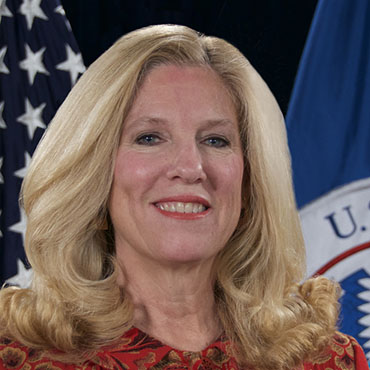Congress vets DHS cyber reorg plans

Lawmakers on Oct. 7 scrutinized the Department of Homeland Security’s inchoate plan to reorganize its cyber bureau, an exercise they said was overdue.

Suzanne Spaulding, Under Secretary for the National Protection and Programs Directorate (NPPD) at the Department of Homeland Security.
Lawmakers on a key House panel agreed that a reorganization of the Department of Homeland Security's directorate in charge of physical and cyber security was overdue, but some members were concerned that Congress was not being kept in the loop.
Changes to the National Protection and Programs Directorate being mulled by DHS officials include "cultural, governance and process changes" to how the directorate operates, said DHS Undersecretary for NPPD Suzanne Spaulding. She testified at an Oct. 7 hearing of the House Homeland Security Subcommittee on Cybersecurity, Infrastructure Protection and Security Technologies.
The plan would empower the directorate's National Cybersecurity and Communications Integration Center, the 24/7 hub for analyzing and disseminating cyber threat information, by putting NCCIC in its own office and aligning it with two multibillion-dollar DHS programs that have been deemed central to federal civilian cybersecurity: Einstein and Continuous Diagnostics and Mitigation.
Texas Republican John Ratcliffe, the subcommittee's chairman, and other lawmakers last month sent a letter to DHS complaining that they were being kept in the dark about the reorganization, as The Hill reported. The hearing was a chance to clear the air.
"[S]everal members of the committee and I were very disappointed to learn about this proposal through leaked reports in the media," Ratcliffe told the DHS officials seated before him. Spaulding pledged to keep the subcommittee apprised of the reorganization plans and said that some changes to the directorate would require congressional approval.
The proposed NPPD shakeup reflects the Obama administration's enduring quest to work more closely with the private sector on cybersecurity challenges. A proposed NPPD infrastructure security office would offer training and assistance to owners and operators of critical infrastructure.
"Within NPPD, we need to take a holistic approach across cyber and physical risks," Spaulding said, adding that the private sector increasingly takes such a view [which] "reflects the world that they face, a world in which cyber and physical … are increasingly intertwined."
Acquisition is another focus area of the NPPD makeover plan. The department is "proposing an Acquisition Program Management function to enable greater effectiveness and accountability in acquisition programs and ensure that operational programs have the tools required in a timely manner," Spaulding said in her prepared testimony. That new function would help the NPPD work with department's Science and Technology Directorate on research and development, she added.
Chris Currie, a homeland security expert at the Government Accountability Office, said that DHS would be wise to consider how the reorganization will affect acquisition management.
"Our experience at DHS and other agencies has shown that it's often the management issues that can creep in as problems later on, after [reorganizations] are done, in areas like human capital and acquisition," he told lawmakers.
Better aligning NPPD's physical and cyber missions by encouraging coordination between field personnel is a worthy goal, John Cohen, a former acting undersecretary for intelligence and analysis at DHS, told FCW. "However, any reorganization should also clearly reflect how NPPD will work with other DHS elements," he said.
Cohen, who is now a professor at Rutgers University, added that DHS officials must also consider how NPPD interacts with "other federal organizations engaged in activities such as active shooter response, private sector outreach, cybersecurity and critical infrastructure protection."


